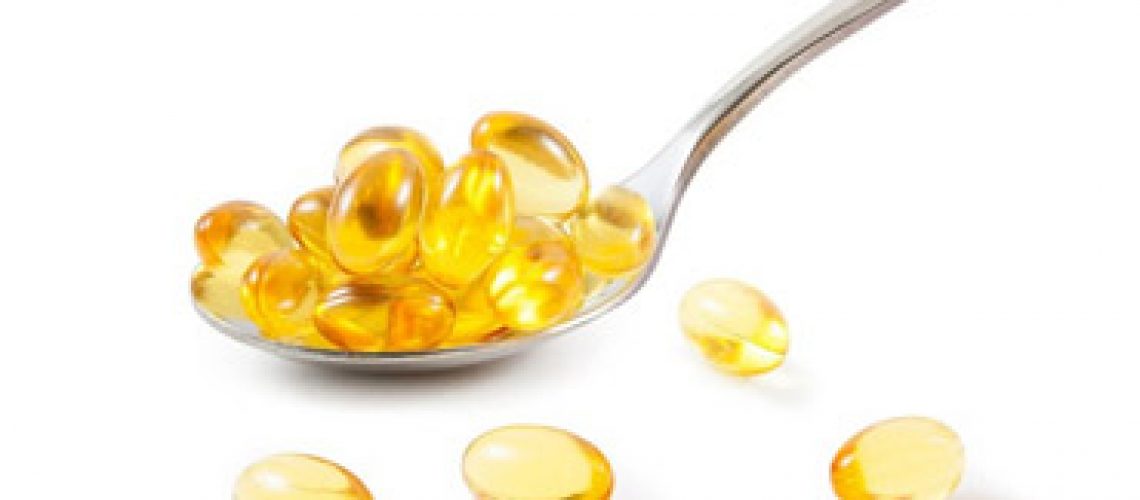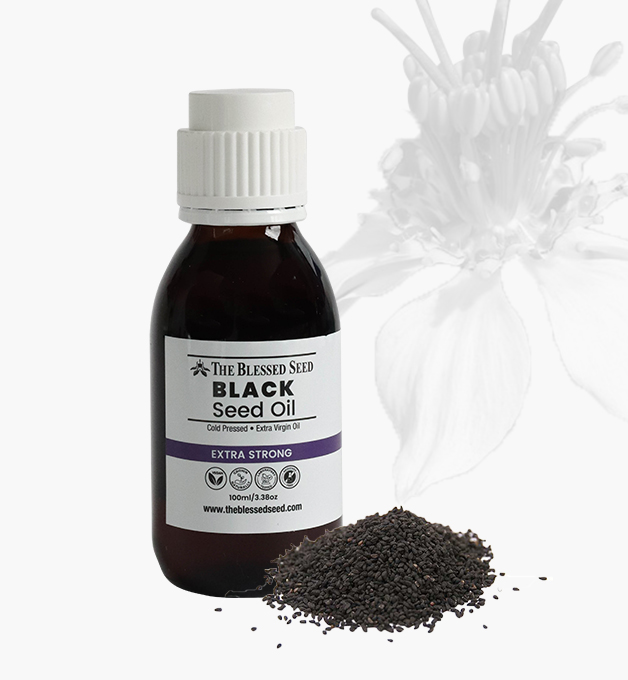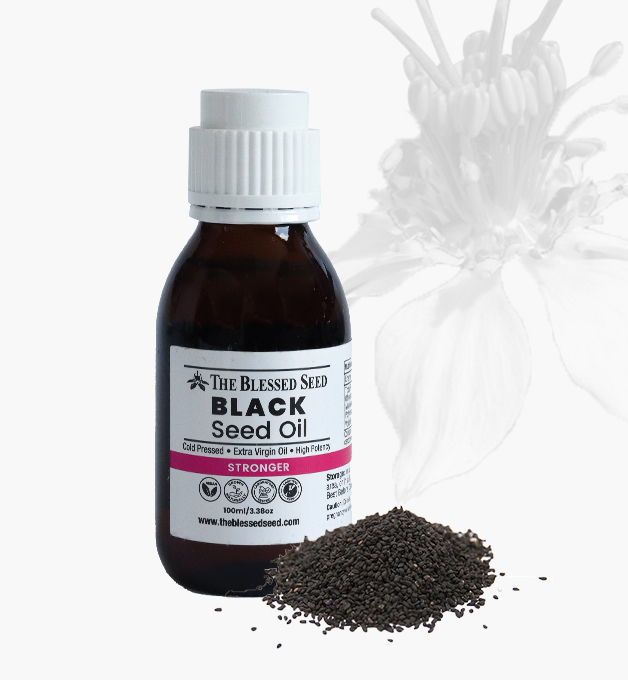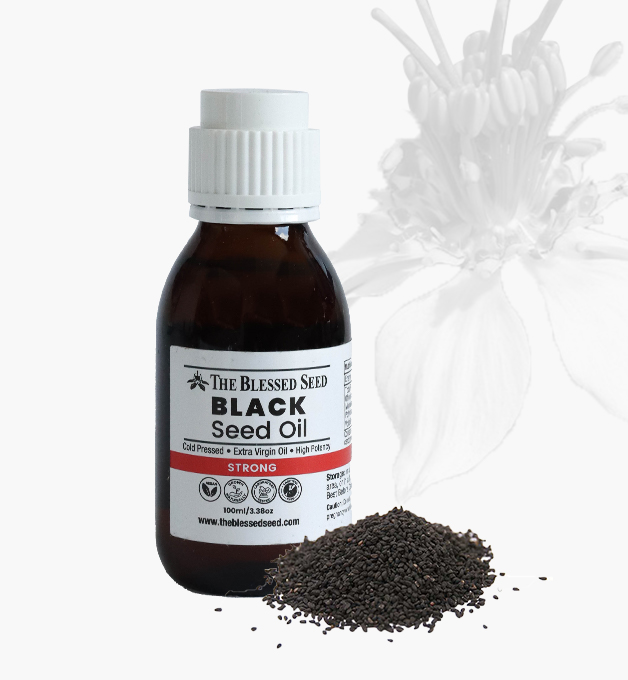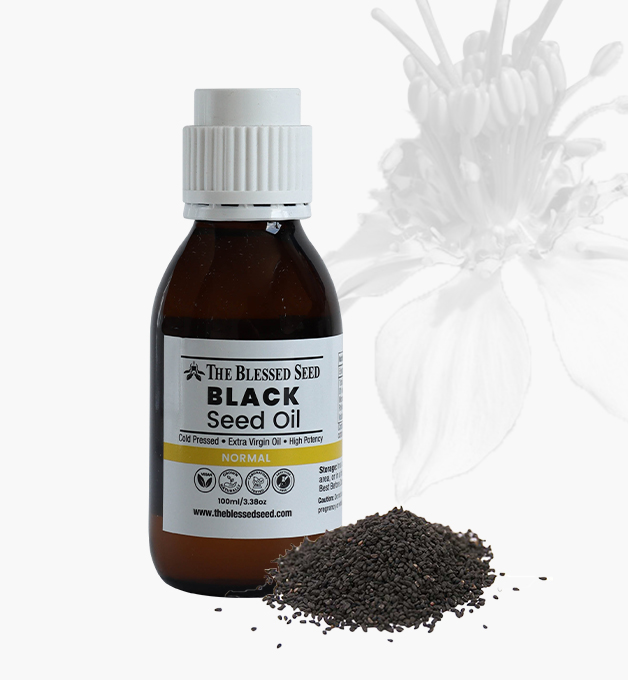In Western culture, it’s difficult to think of a medicinal plant as under-appreciated as N. sativa; a member of the Buttercup family (Ranunculaceae) whose seeds produce an oil with an astonishing number of health benefits.
History of the Black Seed
Found evidence shows that N. sativa, also historically referred to as black cumin, kalonji, or black seed, has been used by humans for at least 3,000 years; archaeologists have discovered the seeds at ancient burial sites in Egypt and Turkey, as well as other sites in the plant’s native Mediterranean region. Records dating back thousands of years show that both the black seed and its oil were valuable commodities in the ancient Middle Eastern economy. Black seed is described in the Bible as being baked into foods for its healing attributes, and the Prophet Muhammad is commonly cited as referring to use of the black seed as “a remedy for every disease except death”. Widely considered to be the father of modern medicine, the Greek physician Hippocrates was among the first to categorically identify black seed oil’s specific health benefits, noting, for instance, that taking it can help to soothe the stomach and address liver disorders.
The Black Seed Today
Compared to these centuries of use, scientific research into the benefits of black seed oil is actually in its infancy, and yet, hundreds of studies already show promising results. Researchers continue to investigate N. sativa’s therapeutic effects on a bewilderingly vast number of ailments, from immune system disorders and gastrointestinal imbalances to respiratory ailments, diabetes, skin conditions, and even cancer.
Immune System Hero
How can the oil of one seed have such an immense array of uses? The idea is, black seed oil (BSO) is not a “cure-all”; it is a “support-all”. BSO contains active compounds (phytochemicals) that have been shown to possess, among many others, antihistamine (treats allergies), hepatoprotective (protects your liver), anti-inflammatory, antioxidant, antitumor, and analgesic (kills pain) properties.
BSO is rich in antioxidants, Fatty acids (including essential fatty acids), and complex vitamins (including B1, B2, and B3). These all play supportive or modulatory roles in the immune system, making BSO a viable treatment for autoimmune disorders such as Hashimoto’s thyroiditis.
The oil has also been found to increase the production of immune-supportive cells such as antibody-producing B cells, bone marrow, and white blood cells. Every dose of BSO stimulates the immune system to protect the body from disease.
Infection Killer
Not only does BSO support your immune system, it actively kills a number of environmental and food-borne threats to it. In a world where between 5 and 10 percent of all patients admitted to US hospitals contract a preventable healthcare-associated infection, N. sativa’s anti-bacterial properties are more important than ever. More and more people die each year from bacterial infections that are resistant to conventional antibiotics. BSO has been found to kill bacteria such as Salmonella, Escherichia coli (E. coli), Listeria, and Staphylococcus aureus (which causes staph infections). Recent research even shows that BSO is effective against all strains of a particular type of staph-causing bacteria, MRSA (Methicillin-resistant Staphylococcus aureus), a “superbug” that has become worryingly antibiotic-resistant.
Aids Digestive System
Hippocrates himself declared how useful BSO is to treat digestion, and modern science tends to agree; BSO has been found to have antispasmodic and carminative effects, relieving cramps, stomach pain, flatulence and inflammation associated with digestive disorders such as irritable bowel syndrome (IBS), heartburn, Crohn’s disease, and others. N. sativa also inhibits the growth of the gastrointestinal bacteria Helicobacter pylori (H. pylori), widely known for causing stomach ulcers.
Combats Diabetes
BSO has been found to reduce blood sugar levels and increase your liver’s sensitivity to insulin. This means it is useful both for treating and preventing type 1 and type 2 diabetes as well as other metabolic disorders. Studies also suggest that BSO’s blood sugar-regulatory effects, anti-inflammatory properties, and appetite-regulating effect make it useful for weight loss.
Fights Cancer
Research indicates that Thymoquinone, one of the active ingredients of BSO, has a cytotoxic effect on – that is, it kills – cancer cells, though without the devastating side-effects of chemotherapy. Thymoquinone has been found to have anti-tumor effects against many different types of cancer, including colon, prostate, pancreatic, lung, and brain cancer. It has also been found to protect against radiation damage.
Promotes Healthy Skin, Hair, and Scalp
BSO can be applied directly to the skin to treat wounds and infections, as well as to soothe irritated skin and fight dandruff. Taking it internally can strengthen hair, and promote hair growth. The anti-inflammatory and immunomodulating effects of BSO make it useful for treating acne, as well as autoimmune skin conditions such as eczema and psoriasis.
As many more uses for this miraculous oil are regularly being found, from improving mood and sleep quality, to aiding the lymphatic system in detoxifying cells, to boosting energy levels, BSO is fast becoming one of the world’s true superfoods.
